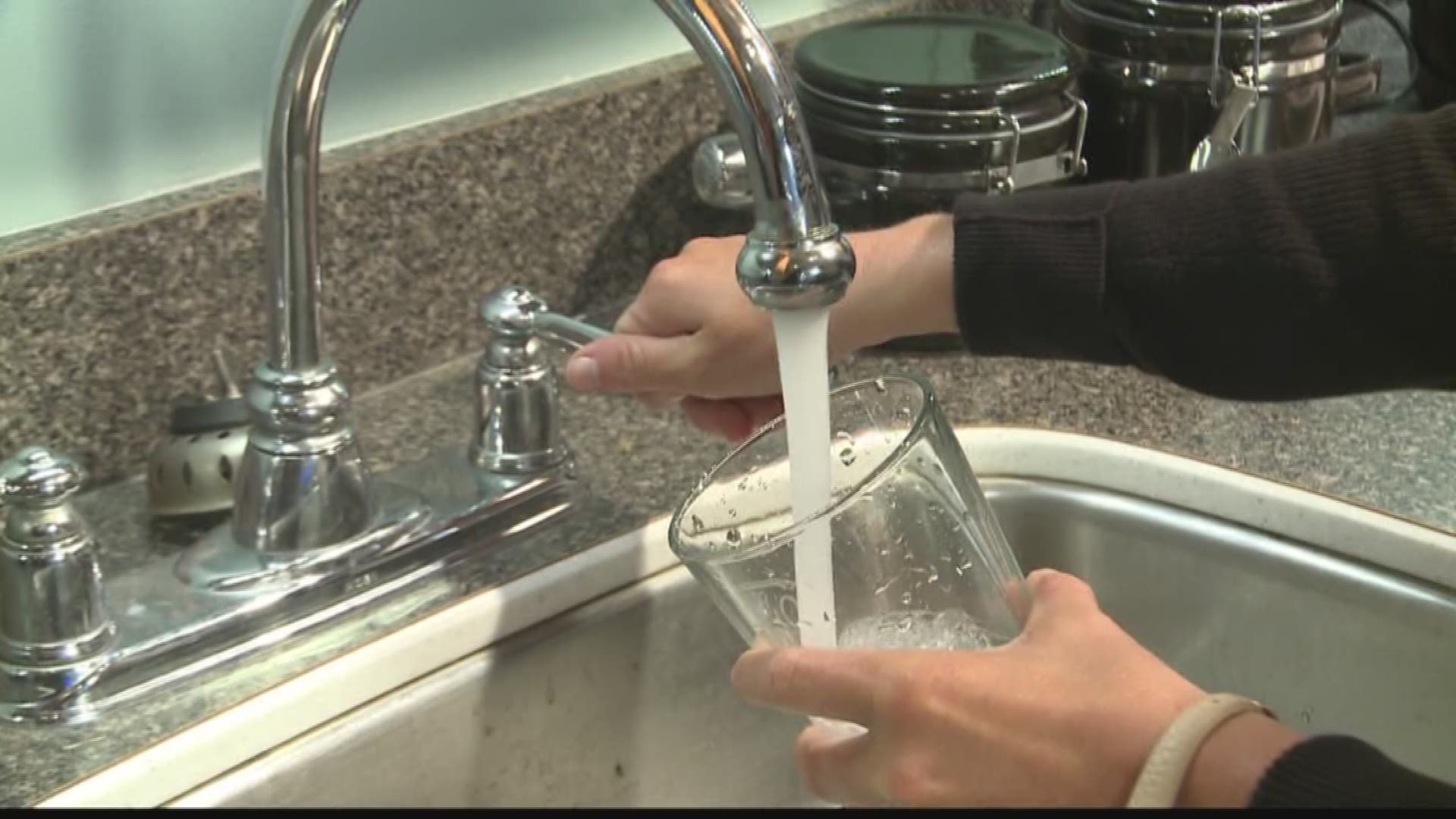(NEWS CENTER) - A new study suggests that your public tap water might not be as clean as you'd like.
The database, released by the nonprofit Environmental Working Group, allows you to plug in your zip code and discover any possibly harmful contaminants in your water.
It's important to note - Environmental Working Group is an independent nonprofit. Maine DHHS says it has worked with the group many times, and that while the group's facts are usually accurate, they are usually used for an agenda. In this case, it appears the group intends to change parts of the Safe Drinking Water Act.
No new contaminants have been added to the regulated list under the Safe Drinking Water Act since 1996.
What this study found was that many contaminants in our public tap water pose health risks - but since they're not on that list, they're perfectly legal.
“It's not common practice [to worry about your public water],” said Jayson Morrison of “Air and Water Quality” in Freeport. “People assume because they are on a public water supply, that somebody else is testing, somebody else is treating their water.” Somebody else is, in fact, testing your public water - making sure it complies with the federal regulations.
If you get your water from the Portland Water District - the study found two contaminants above health guidelines that are linked to cancer.
If you drink water from the Bangor Water District - researchers found six contaminants, including chloroform, all linked to cancer.
“There are solutions,” said Morrison. “You can be proactive and treat your water.”
These results don't necessarily mean your tap water will make you sick.
But they do suggest that using more caution with your water might be a good idea.
“To ensure that they are drinking water and the water they are using at home is satisfactory, a system can be installed to take care of it,” said Morrison. He says that Brita filters or refrigerator filters are not the safest way towards clean water. They mostly remove chlorine and improve taste.
“From a health related standpoint, it doesn't remove a lot of the stuff that would be dissolved within the water, that you wouldn't know was there other than testing,” he said. “It doesn't have the capacity or the ability to do that.”
He says to ensure proper taste and bottle-quality water coming out of your sink, that you install a reverse osmosis drinking water system. “Basically, what reverse osmosis is is you're pushing the water against a semi permeable membrane. So these heavy metals, chemicals, pharmaceuticals that you are talking about, are too large to pass through the membrane. So you're just getting good treated water on the other side. All of these things that we don't want in our water are getting rinsed out to the drain and flushed out,” he explained.
It's no secret that a getting a filter system installed is not cheap.
Morrison says they can cost anywhere from $1000 to $2500 - but that if you are worried about your water and don't want to buy plastic bottles, it might be worth the expense.
NEWS CENTER followed up with both the Bangor and Portland water districts to get their reactions to this database, and what it means for them.
“We have very safe drinking water in Bangor," said Dina Page, the Water Quality Manager in Bangor. "We’re very fortunate to have Floods Pond as the public water supply. It’s one on the most protected bodies of water anywhere. In regard to the 6 contaminants found, there is a difference between the health recommendations that are cited in the report, which are not enforceable, and the federal guidelines… we are fully in compliance with those.”
She says that the Bangor Water District does testing all the time - and that people should know the regulations are the same across the entire country.
Page says that while the database may make people aware of contaminants in their water, it doesn't mean those contaminants are new. Rather, scientific testing has improved over the years, and new contaminants are being recognized that never were before.
When the EWG's database says that things are "above health guidelines," Page says those guidelines depict a "perfect world."
Michelle Clements form the Portland Water District echoed the same sentiments - that this database is not new information. She says the Portland Water District issues a public report every year, and all this information can be found in it.
"Our tap water meets, if not surpasses, all standards and we work with the epa to monitor other substances as well," Clements said. "*Public health is our priority. That’s what we’re in the business of, providing quality water to our customers. We do that. That’s our business.”
Clements added that if the EPA deemed an update to safe drinking water regulations necessary, that she would support it. But she says she is proud of the water in Portland, and that people have nothing to worry about. "It's one of the best sources in the country," she said. "We're very lucky in Greater Portland."

